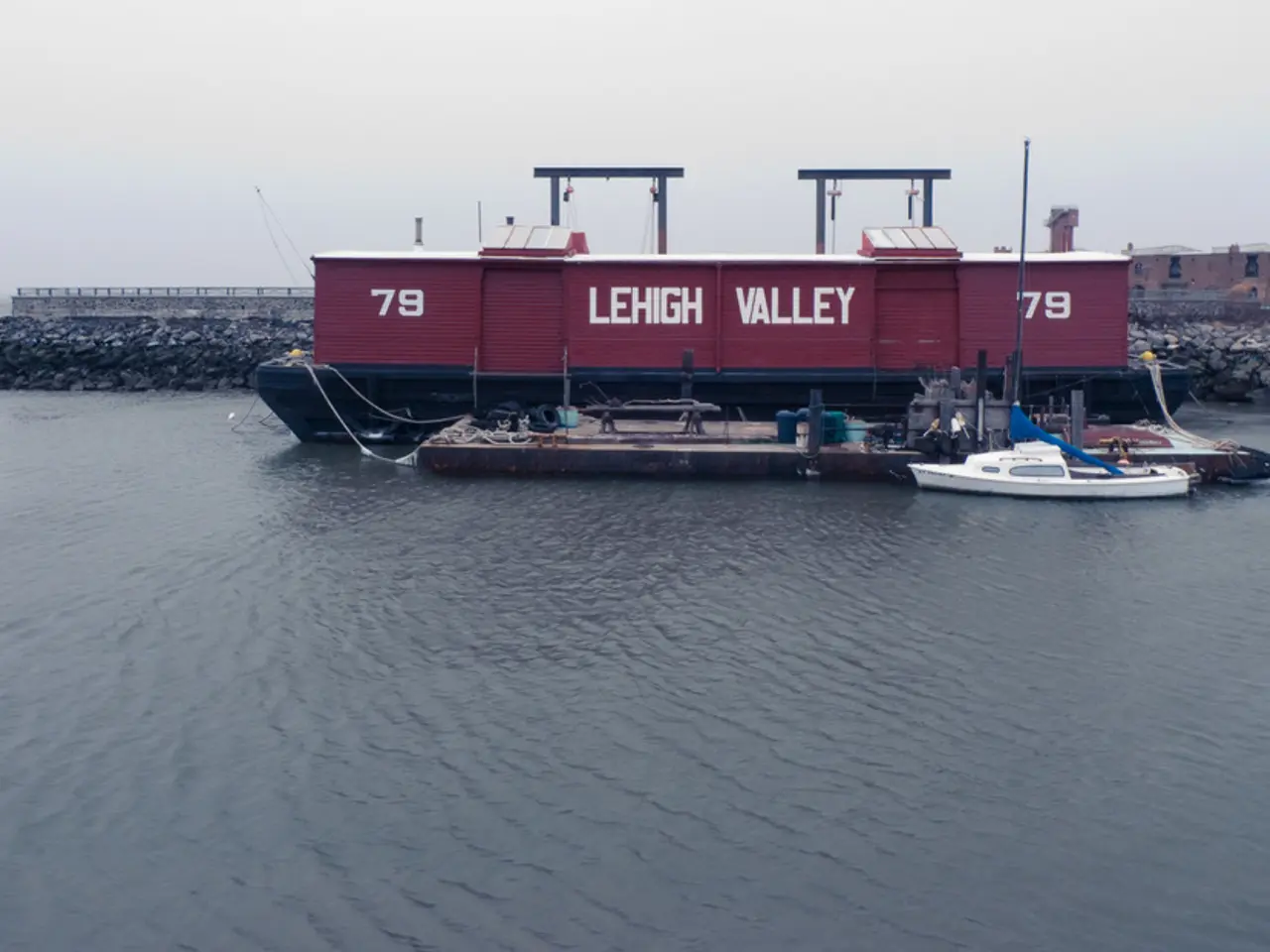Unified Effort in Mobile Bay Dredging Project Gathers Unexpected Partners in Alabama
In the heart of Alabama, a federal dredging project has sparked a heated debate, with local shrimpers, oyster harvesters, and a coalition of fishing interests, property owners, environmental groups, and Republican elected officials voicing their concerns. The crux of the controversy lies in the disposal of dredge spoil (the sediment removed during dredging) in parts of Mobile Bay, which they argue is causing significant harm to the local ecosystems and the seafood industry.
The U.S. Army Corps of Engineers Mobile District, responsible for the project, employs a thin layer placement technique to put back most of the dredged material into Mobile Bay. However, critics argue that this practice is choking the estuary with dredging mud, ruining the fishing grounds and posing a real threat to the survival of local fishermen's livelihoods.
Patrick Gormandy, a shrimper in Mobile Bay, has been active in the bay for decades. He laments that the decline in his catch this season is in part due to the federal project to expand and maintain the Mobile ship channel. Gormandy's catch for the day is less than half of what he would typically harvest in the middle of summer, a stark contrast to previous years.
Alabama oyster harvesters are facing similar struggles. The decline in their catch is a worrying sign for an industry that already grapples with pollution from sewage spills. The situation has led Alabama State Senator Chris Elliott to sign onto a letter urging Congress to act against the dredging project. Elliott is also looking at a Maryland law that prohibits this kind of dredge disposal in the Chesapeake Bay.
Elliott is concerned that the dredging project may squeeze out local fishermen and shrimpers trying to make their living in Mobile Bay. The Alabama Port Authority, on the other hand, supports the project because it will allow the Port of Mobile to accommodate larger cargo ships coming through the Panama Canal.
Justin McDonald, chief of civil works programs and project management branch of the U.S. Army Corps of Engineers Mobile District, maintains that keeping the sediment in the system renourishes the system. He argues that the environmental impact of the dredging operation is short-term and temporary, but will benefit the bay in the long run.
However, opponents of the project, such as Mobile Baykeeper, are not convinced. They have been monitoring the offshore dredging operation and have filed a notice of intent to sue the Corps under the Endangered Species Act. Mobile Baykeeper wants the Corps to use more of the dredge material for coastal restoration projects or take it offshore to the open Gulf.
The controversy highlights tensions between infrastructure development and environmental/economic sustainability for local communities dependent on the bay’s natural resources. Republican Senator Katie Britt of Alabama has questioned Corps officials about the dredging project during a June subcommittee hearing and is pushing for at least 70% of the dredge material to be used for beneficial purposes like habitat restoration or wetland creation.
The coalition, including Gormandy, is lobbying Congress to ban the dumping of dredge material into Mobile Bay. They seek compensation for their losses and a more sustainable approach to dredging that prioritises the protection of the bay's ecosystems and the livelihoods of its fishermen.
[1] Alabama shrimpers and oyster harvesters face declining catches due to federal dredging project. (2022, June 1) Retrieved from https://www.al.com/news/mobile/2022/06/alabama-shrimpers-and-oyster-harvesters-face-declining-catches-due-to-federal-dredging-project.html
[2] Mobile Bay dredging project sparks controversy. (2022, June 15) Retrieved from https://www.alabamanewscenter.com/2022/06/15/mobile-bay-dredging-project-sparks-controversy/
[5] Alabama senator pushes for more dredge material to be used for beneficial purposes. (2022, June 16) Retrieved from https://www.al.com/news/mobile/2022/06/alabama-senator-pushes-for-more-dredge-material-to-be-used-for-beneficial-purposes.html
- The Alabama shrimpers and oyster harvesters, supported by environmental groups and Republican elected officials, are advocating for a ban on the dumping of dredge material into Mobile Bay, claiming it negatively impacts the local ecosystems and seafood industry.
- Senator Katie Britt of Alabama, during a subcommittee hearing, questioned Corps officials about the dredging project and proposed that at least 70% of the dredge material be utilized for beneficial purposes such as habitat restoration or wetland creation.
- Amidst concerns about environmental sustainability versus infrastructure development, the coalition, including Alabama State Senator Chris Elliott and shrimper Patrick Gormandy, are seeking compensation for their losses and a more sustainable approach to dredging that prioritizes the protection of Mobile Bay's ecosystems and the livelihoods of its fishermen.








